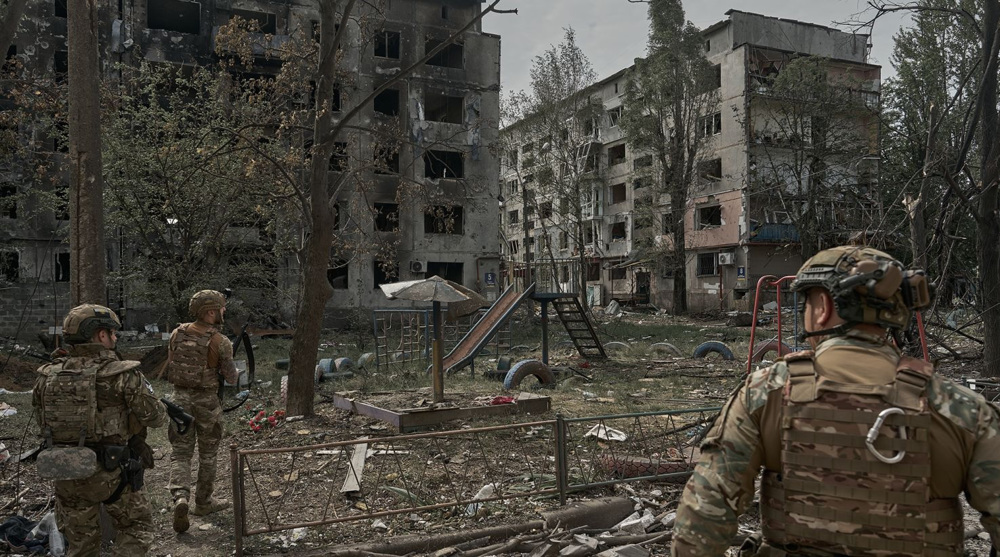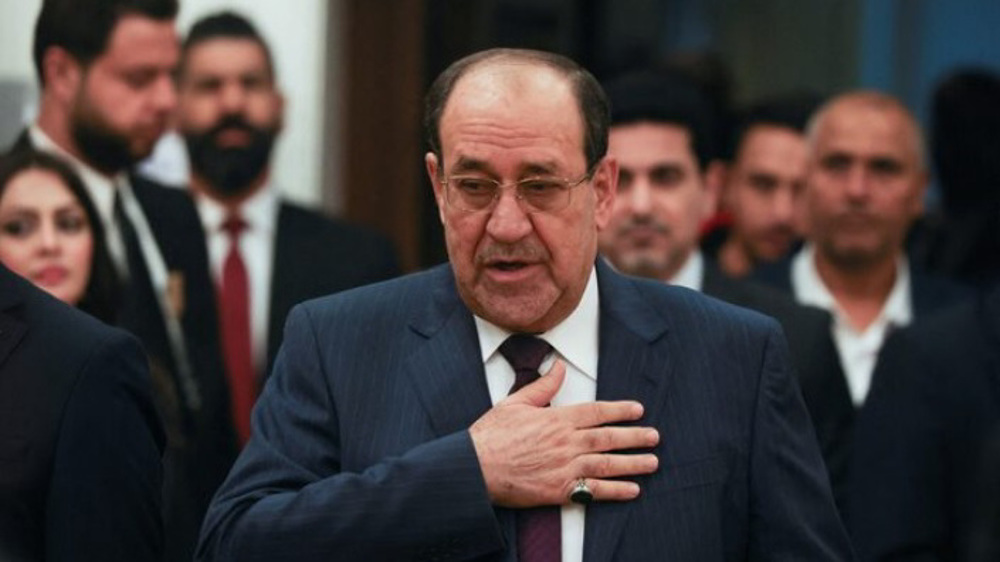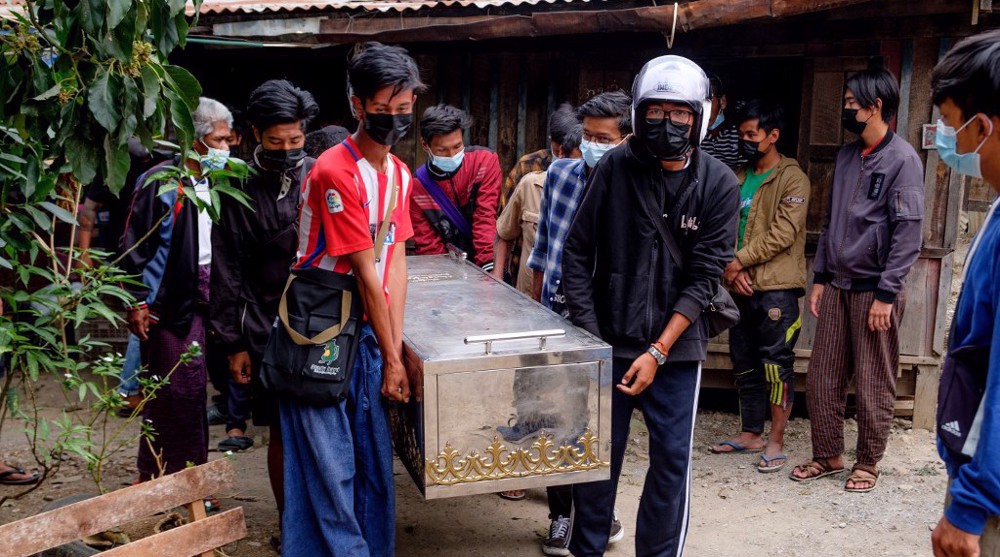Protesters hold vigils in Myanmar, US orders some diplomats out
Protesters in Myanmar have held overnight candle-lit vigils for those killed by the country’s military regime, and the US has ordered its non-essential diplomats to leave the country amid continued violence.
A local advocacy group, the Assistance Association for Political Prisoners (AAPP), reported the killing of eight more protesters on Tuesday, when thousands took part in protest rallies in several towns.
A march by protesters and vigils also took place in Moegaung, in Kachin, at dawn on Wednesday.
At least 521 civilians have so far been killed in two months of protests against the military’s February 1 coup, which ousted civilian leader Aung San Suu Kyi, 141 of them on Saturday, according to the AAPP.
Aung San’s ouster came even though she had aligned herself with the military and defended its atrocities against the country’s Rohingya Muslim minority population.
Meanwhile, the US State Department says it is ordering the “non-emergency US government employees and their family members” to leave the Southeast Asian country, noting that it made the decision to protect the safety and security of the staff and their families.
The junta’s violent response to nationwide protests has prompted global condemnation as well as threats of retaliation by a number of Myanmar’s nearly 20 armed militant groups that control large areas of territory mostly in border regions.
Three of them — the Ta’ang National Liberation Army, the Myanmar Nationalities Democratic Alliance Army, and the Arakan Army (AA) — on Tuesday pledged to join the uprising by protesters.
While the three groups are yet to act on their threat, two other outfits — the Karen National Union (KNU) and the Kachin Independence Army (KIA) — have escalated attacks on Myanmar’s military and police forces in recent days.
A police station in Bago was reportedly struck with a rocket attack that wounded five officers on Tuesday.

Moreover, the KNU, which is one of the largest armed groups that operate along the eastern border with Thailand, seized an army base in Kayin State over the weekend, prompting the military to respond with airstrikes, which resulted in the fleeing of nearly 3,000 villagers to Thailand.
The KNU said it was bracing for a major government offensive, calling on the international community, Thailand in particular, to help Karen people fleeing the “onslaught” and urged countries to cut ties with the junta.
The Thai Foreign Ministry announced late on Tuesday that some 2,300 villagers had returned to Myanmar, while about 550 remained in Thailand. Karen activists, however, have accused Thai authorities of pushing people back and blocking United Nations (UN) officials from the area.
The KNU’s head of foreign affairs, Padoh Saw Taw Nee, declared on Tuesday that the group would continue its position of “strongly supporting people’s movement against (the) military coup.” Its fifth brigade also published a statement slamming the airstrikes and warning that it had no option but to “confront these serious threats” posed by the military.
The KIA militants operating in the north also attacked a police station in Kachin State on Wednesday, its news service reported.
Separately, a border state in India withdrew an order to refuse refugees food and shelter after the measure drew fierce public criticism.
The UN Security Council is due to hold an emergency session on Myanmar on Wednesday, called for by former colonizer Britain. The 15-member body will meet behind closed doors, beginning with a briefing from the UN’s special envoy on Myanmar, Christine Schraner Burgener.
Iran warns about consequences of normalizing violations of intl. rules
VIDEO | Gaza’s Ramadan: 1.7mn displaced struggle between hope and pain of war
Israel’s West Bank land seizures signal 'alternative homeland' threat: Ex Jordanian official
Tarique Rahman sworn in as Bangladesh’s new prime minister
UAE removes online references to Hind al-Owais after Epstein email revelations
Iran in no way seeking nuclear weapons: Pezeshkian
Oman: Iran-US indirect talks in Geneva achieve tangible progress
VIDEO | Press TV's news headlines












 This makes it easy to access the Press TV website
This makes it easy to access the Press TV website